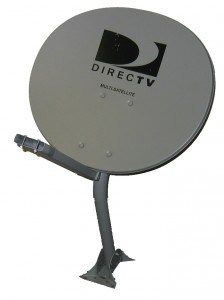
*-Terms, conditions, and a whole lot more applies.
Austin residents are getting spoiled with promises of gigabit broadband — the first major city in the country offered a competitive choice of 1,000Mbps Internet providers — Google and AT&T.
But one of those claiming to offer a “100-percent fiber Internet broadband network that will deliver up to 1Gbps per second,” is already fudging on that commitment before activating its first fiber customer.
AT&T’s sudden interest in selling 1,000Mbps service came as a surprise to Austin residents that have been told for years their broadband service was fast enough as is. Grande Communications had been the choice for customers seeking the fastest speeds — they sell up to 110/5Mbps for $110 a month. Time Warner Cable still tops out at 50Mbps and AT&T’s U-verse, still not fully deployed in Texas, sold up to 24Mbps ‘screaming fast’ Max Turbo service as its top offering until recently, when AT&T began limited roll-out of up to 45Mbps service.
Mere hours after Google announced Austin as its next choice for Google Fiber, “me-too” AT&T was announcing it would build its own gigabit fiber to the home network in the same city. That was a complete 180 for AT&T, which has consistently argued that running fiber to the home was an unnecessary expense. While Verizon faced the wrath of Wall Street for its decision to launch FiOS — an all-fiber-network — analysts were complaining Verizon was spending too much while AT&T was spending considerably less on its fiber to the neighborhood U-verse system that keeps existing copper wire into the home.
Right from the beginning, AT&T has always accompanied certain terms and conditions for any fiber deployment — winning equal concessions that Google received from local officials with respect to pole attachment fees, zoning, permits, and other expenses. If those were not forthcoming, AT&T could walk away from its fiber commitment at any time.
On Monday, AT&T announced it had started deploying fiber for AT&T U-verse with GigaPower, with a plan to launch in December in neighborhoods with the highest number of votes to get the service. AT&T is taking names and numbers of interested customers seeking to show their interest in fiber service. No deposit or commitment is required to vote, but you will be placed on AT&T’s marketing mailing lists.
“Austin embodies innovation and social consciousness, and is the heart of a vibrant, ever-evolving tech culture and entrepreneurial spirit,” said Dave Nichols, president of AT&T Texas. “With our all-fiber U-verse services, we are building the foundation for a new wave of innovation for Austin’s consumers, businesses, and civic and educational institutions. It’s about engaging the full community and empowering the city and its people with all that technology can offer us. This investment will help attract new business and new jobs to Austin.”

Phillip Dampier
As long as those consumers, businesses, and jobs are within the first deployment zone for AT&T’s fiber network.
For the rest of this year and well into the next, that will be a very exclusive neighborhood.
AT&T’s press release claims it will “initially reach tens of thousands of customer locations throughout Austin and surrounding areas this year, with additional local expansion planned in 2014.”
The five-county Austin–Round Rock metropolitan area has a population of 1,834,303 residents. Assuming AT&T managed to offer fiber service to 100,000 residents — and that is a generous figure, that represents only 5.5% of Greater Austin. The old U-verse is still a work in progress in several Texas cities, so it could take years for AT&T to deploy fiber in Austin. Expect AT&T to start with the low-hanging fruit — multi-dwelling units such as apartments, condos, and other similar buildings, some that already have existing fiber connections in place.
AT&T may never get around to offering fiber to more rural locations in Austin’s suburbs: “There are many factors involved in stringing an advanced fiber network, so having your neighbors vote to be notified about U-verse with GigaPower is no guarantee we’ll get to your neighborhood first, but it does give us some idea of where we want to focus our efforts; and besides, things are always more fun when we work together.”
AT&T is already backing away from its commitment to offer gigabit service, at least initially.
“The December launch will initially feature symmetrical speeds of up to 300Mbps, […] with an upgrade to speeds up to 1 Gigabit per second when available in mid-2014, and at no extra cost,” AT&T writes in its press release.
Speaking of cost, nobody at AT&T is willing to give us one for the 1,000 300Mbps launch tier.
If AT&T is smart, it better set it lower than what Google is likely to charge, considering AT&T will initially only deliver less than 1/3rd of the promised gigabit speed.
While thinking about that, AT&T might also want to dump usage caps. The fastest U-verse tiers come with a 250GB usage allowance, which can really crimp a screaming fast fiber experience once your allowance runs out.


 Subscribe
Subscribe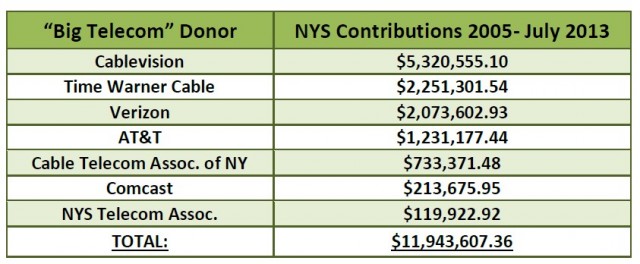 Since 2005, five cable and telephone companies and their respective lobbying trade associations have donated nearly $12 million to New York politicians, making Big Telecom companies among the biggest political donors in the state. Now a government reform group wants an investigation by the state’s anti-corruption commission.
Since 2005, five cable and telephone companies and their respective lobbying trade associations have donated nearly $12 million to New York politicians, making Big Telecom companies among the biggest political donors in the state. Now a government reform group wants an investigation by the state’s anti-corruption commission.
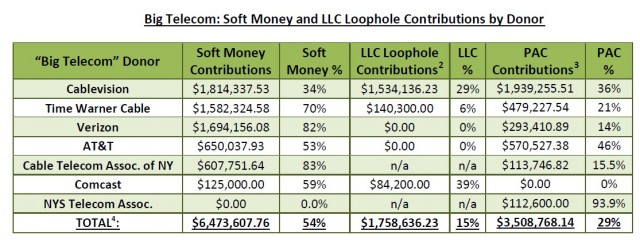
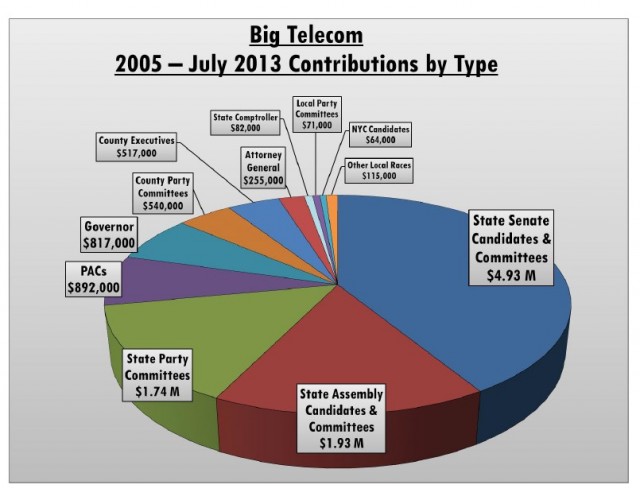 Where does all the money go?
Where does all the money go?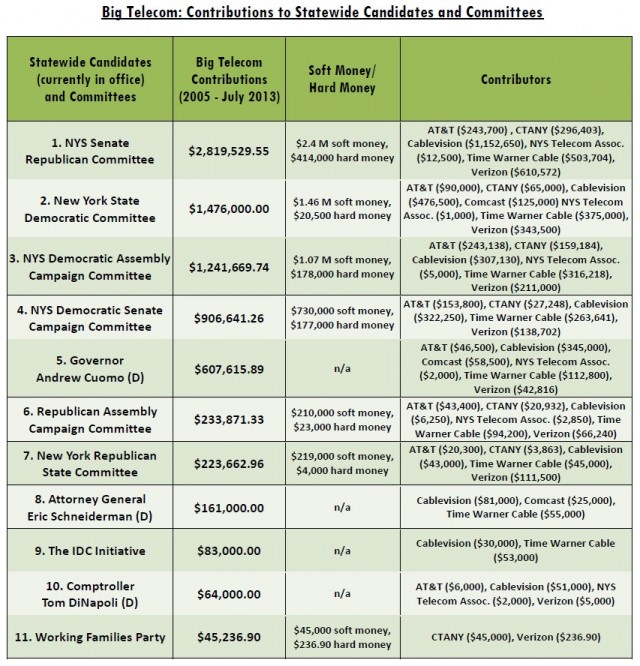
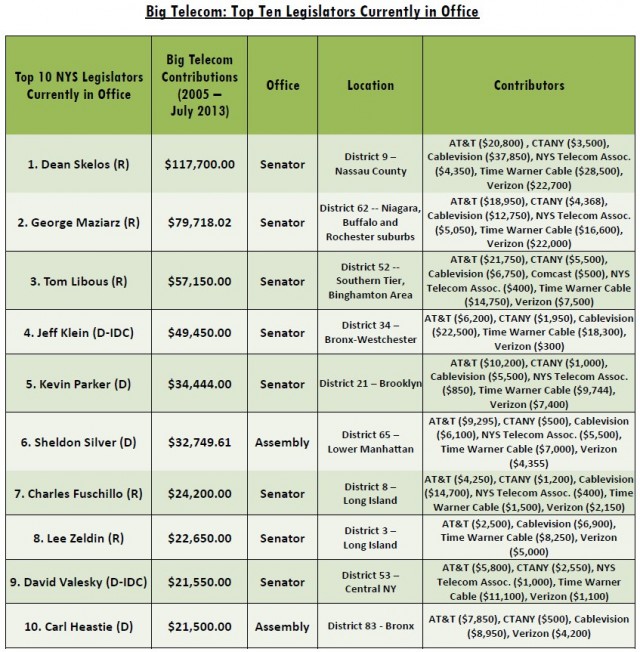
 A 7635-A / S5630-A: Establishes a moratorium on telephone corporations on the replacement of landline telephone service with a wireless system.
A 7635-A / S5630-A: Establishes a moratorium on telephone corporations on the replacement of landline telephone service with a wireless system.
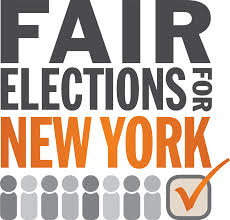 A6003/S5577 — Directs the Department of Public Service to study and report on the current status of cable television systems providing services over fiber optic cables.
A6003/S5577 — Directs the Department of Public Service to study and report on the current status of cable television systems providing services over fiber optic cables.
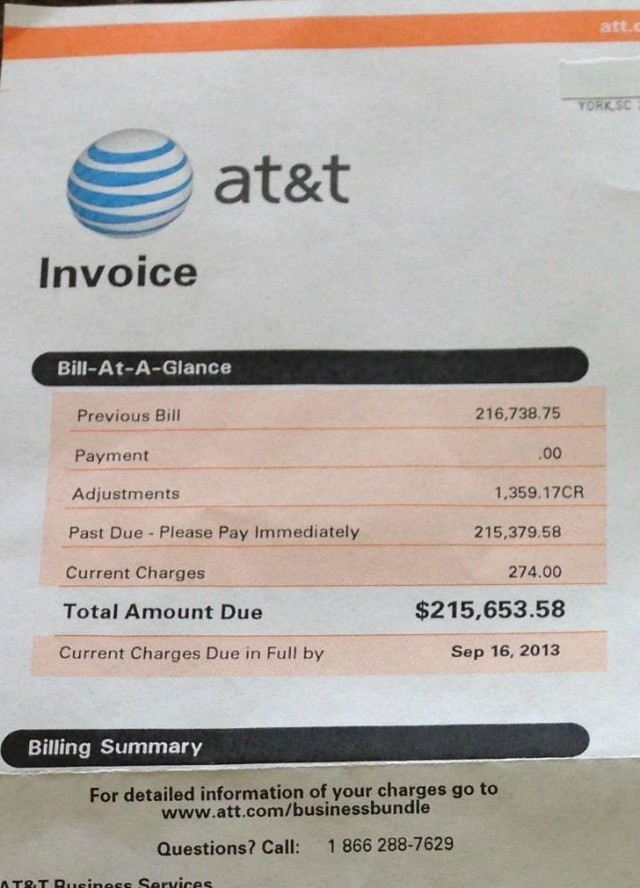
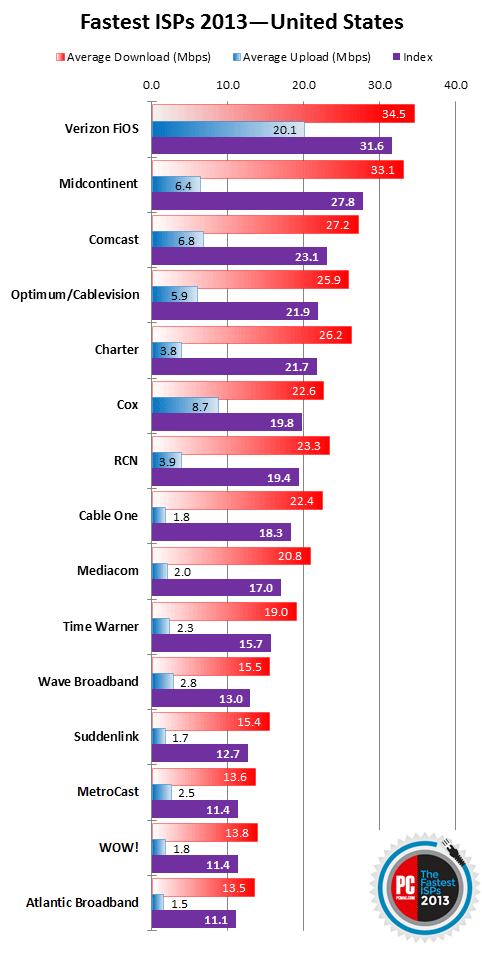 Verizon FiOS is the fastest nationwide broadband service available.
Verizon FiOS is the fastest nationwide broadband service available. As residents across flood-stricken Colorado begin the task of cleaning up damaged homes and in some cases rebuilding them on now-empty lots, many have
As residents across flood-stricken Colorado begin the task of cleaning up damaged homes and in some cases rebuilding them on now-empty lots, many have 